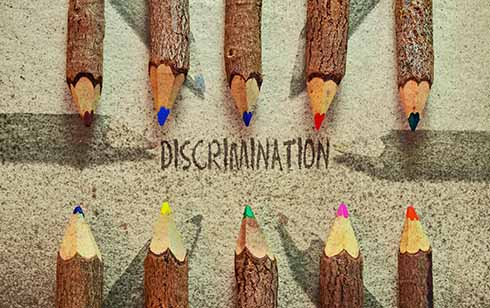 During March we are encouraged to reflect on discrimination against different groups in society and to disown it.
During March we are encouraged to reflect on discrimination against different groups in society and to disown it.
The first of the month was Zero Discrimination Day, while 21 March, which calls on us to eliminate Racial Discrimination, is also the 60th anniversary of the Sharpeville Massacre.
On that day South African police fired on people demonstrating against Apartheid. A total of 250 women, men and children died. In retrospect it can be seen as a turning point in the long path of South Africa to being a multi-racial society.
FEAR OF OTHERS
Sharpeville indicated that the roots of racial discrimination lie in the fear that people of one race often harbour for those of one another.
It also demonstrates that racial discrimination in society expresses itself naturally in rage and state violence. That explains why it is so important to call out racial discrimination and contempt for people of different races when we find it. Left unchecked such feelings can easily lead to violence and repression.
Racial discrimination is unjustifiable because it is built on a shallow and dangerous understanding of what it means to be human.
It assumes that the most important and defining quality of people is their race. From that belief follows the conclusion that race controls the way in which people should be treated. In fact, although racial identity is an important aspect of human lives, each person has a unique and high value simply by virtue of being human. Because we share a common humanity we are all are entitled to an equal respect that does not privilege one group over others on the grounds of race, wealth, religion or political allegiances.
DENIAL OF SHARED HUMANITY
To discriminate against people on any of these grounds means denying the claims that their shared humanity makes on us and our society. It is not morally justifiable.
In Australia many people complain of meeting different kinds of prejudice and discrimination in their daily lives. Some are abused and discriminated against on the grounds of their race, others on the grounds of their religion, their political views or their gender.
Sometimes people who protest against different forms of discrimination find themselves in conflict with one another. One group will wish to ban words and conduct that they find discriminatory and harmful; another group will see the proposed ban as discriminatory against themselves. This conflict has been evident in the public debate about religious freedom.
MUTUAL RESPECT
Ideally these disputes will be resolved by negotiation inspired by mutual respect. In polarised public conversation, however, mutual suspicion can replace mutual respect, and people can defend their own rights at the expense of the rights of others.
In any society discrimination against minority groups in society displays a lack of respect for the humanity of the people who are discriminated against. Discrimination often does need to be addressed by laws against it. But such laws cannot create respect, which can only be instilled through examples of respectful conversation shaping public life and personal relationships. Respect is the business of the whole community.